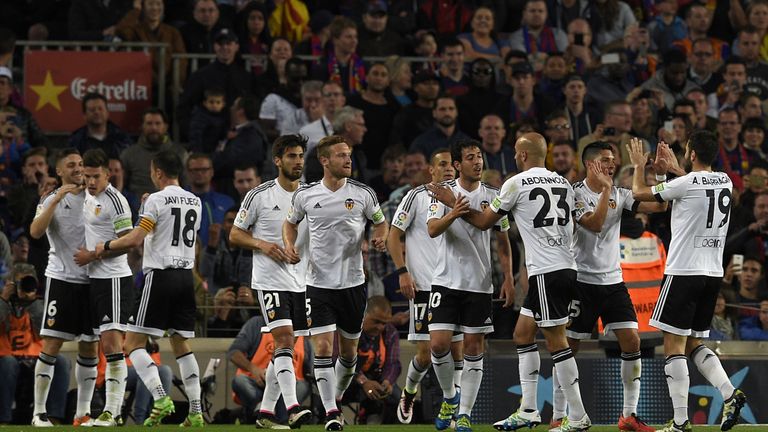Real Madrid and Barcelona among seven La Liga clubs to repay state aid
Monday 4 July 2016 15:34, UK
The European Commission has ruled that seven teams in Spain - including Real Madrid and Barcelona - must pay back millions of euros handed out in state aid and/or favourable tax rates by local governments.
The Commission claimed the cash received for a variety of reasons, ranging from re-valuation of land to privileges in corporate taxation, gave the clubs concerned an unfair advantage over other teams, in breach of EU state aid rules.
As a result, Spain must now recover the illegal state aid amounts from Barcelona, Real Madrid, Valencia, Athletic Bilbao, Osasuna, Elche and Hercules.
Commissioner Margrethe Vestager, in charge of competition policy, said: "Using tax payers' money to finance professional football clubs can create unfair competition.
"Professional football is a commercial activity with significant money involved and public money must comply with fair competition rules. The subsidies we investigated in these cases did not."
EU state aid rules apply to public interventions in the market to ensure they do not distort competition by selectively favouring one market participant over another. Professional sport is an economic activity.
The first investigation concerned tax privileges in favour of Real Madrid, Barcelona, Athletic Bilbao and Osasuna.
In Spain, professional football clubs are considered as limited liability companies for tax purposes. However, these four clubs were treated as non-profit organisations, which pay a five per cent lower tax rate on profit than limited liability companies. The four clubs benefited from this lower tax rate during over 20 years, without an objective justification.
In a second investigation, the Commission examined a land transfer between Real Madrid and the City of Madrid. The inquiry determined, based on an independent study, that the land affected by the transaction was overvalued by 18.4m euros. This gave Real an unjustified advantage over other clubs, which it now needs to pay back.
Finally, the Commission investigated guarantees given by the state-owned Valencia Institute of Finance (IVF) for loans granted to three Valencia football clubs (Valencia, Hercules and Elche).
At the time, those clubs were in financial difficulties. The public guarantee allowed the clubs to obtain the loans on more favourable terms. As the clubs paid no adequate remuneration for the guarantees, this gave them an economic advantage over other clubs, who have to raise money without state backing.
The amounts to be paid back are: Real Madrid, 18.4m euros (£15.4m); Valencia, 20.4m (£17.1m) euros; Hercules, 6.1m (£5.1m) euros and Elche, 3.7m (£3.1m) euros. The fees to be paid by Barcelona, Athletic Bilbao and Osasuna will be determined by Spanish tax authorities.
Valencia were the first of the seven clubs to react to the news, saying in a statement: "In relation to the sanction of the European Commission to Valencia Football Club for receiving state aid in 2009, the Valencia Football Club wishes to state that the decision of the European Commission, which has today been notified to the media, has not yet been forwarded to the Club. When the full resolution content is received, it will be analysed.
"Meanwhile, Valencia Football Club wishes to emphasise that the decision of the European Commission is not final and the club, once it has analysed the content, reserves the right to appeal before the General Court of the EU in Luxembourg."






